Choice of instrument fuels debate on swing-ability
By Jon Liebman
Week of December 23, 2019
Should jazz bass be confined only to the upright bass?
Should electric bass players be “allowed” to play jazz?
It’s a subject that gets some bassists pretty riled up, including this week’s interviewee, Teymur Phell.
Born in Azerbaijan and raised in Israel, Teymur was exposed to all kinds of music while growing up, including rock, jazz, fusion, and classical. He became an outstanding instrumentalist on both electric and upright bass, demonstrating great prowess with classical bowing, as well as virtuoso chops on the 5- and 6-string electric, including fretless.
As well-rounded a bass player as he is, one topic that really pushes his buttons, is the refusal of some people to take the electric bass seriously as a legitimate instrument for playing jazz.
What’s up with that?!
Teymur is critical of electric players who add triplets, ornaments and other embellishments that are often inappropriate and out of place. On the other hand, he cites players like John Patitucci, Anthony Jackson, and Jaco Pastorius to disprove anyone’s notion that a genuine swing feel can’t be accomplished on the electric bass.
According to Teymur, you can get the job done even if all you play are quarter notes. “Just play fat quarter notes,” he says, “and see how satisfying that can be on an electric bass.”
What it really comes down to, Teymur says, is how good are your tone and your time. You can play jazz on an upright bass, but if you have bad tone and bad time, how’s that going to make the music swing?
Let me know your thoughts on the subject by leaving a comment below. I’d love to hear from you. In the meantime, check out my interview with Teymur here.
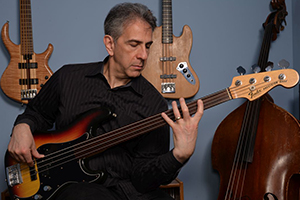
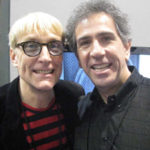
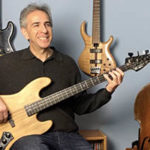
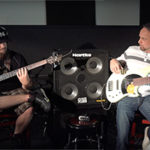
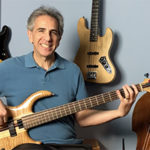

I certainly agree with Teymur. Good time is good time. The uprite allows you more punch On your quarter notes if you know what I mean. The sound texture is different between electric and acoustic. You pizz the string more firmly on upright. The definition is different. I played a lot on both instruments and I do know the difference. But electric bass can sound great playing 4/4. Walking lines. You just have to learn how to place the notes when you’re playing through an amp. Upright has more point, while electric can give you more body. Play them both in good jazz time eg. the sort of triplet feel, and you’ll be in demand a lot
Teymur Is absolutely correct. It is possible, and very doable… But, it’s Not the fault of the other musicians who discriminate (usually) ; the fault rests almost entirely on the shoulders of electric bassists who don’t focus on their “role” as a jazz bassist and play too many notes…. and not enough time and tone!
I faced a lot of this when I was a kid, learning to play. My first playing and gig experience was playing in my father’s big band. All I had was a cheap electric, and, while I consider guys like Ray Brown, Eddie Gomez, John Heard, and Paul Chambers to be strong influences on my playing, bass is bass and jazz is jazz. I even had a couple of older upright players come up to me and tell me that they were anti-electric, but they were okay with the way I was doing it. Of course you can play jazz on an electric. Jaco, Stanley, Abraham, etc. Not even a real question.
As for the pov on ’embellishments’ or ‘triplets’, I don’t get that either. I do get that most bassists should avoid anything that they can’t make musical, or make serve the song. That being said, great bassists are rarely quarter note providers only. Seems restrictive. I play in an R&B band just so I can play that stuff that all the Mowtown guys did, and none of that was restricted to quarter notes–thank God!
I started playing again in my 50’s and I play jazz on Fender Jazz Bass. I originally started in my teens but I never learned upright bass. So I’ve only known the Electric Bass
I’m quite happy with it too so all upright zealots can buzz off.
I always thought that you can play the Electric Bass in Jazz ,don’t see what the issue is.You can play the Electric Bass for Jazz the same way you can play an electric Keyboard or Synth in Jazz.I always thought that’s what Jazz was all about ,no boundaries .
Dario Deidda
Tyrone Brown
Jim Fielder
Gordon Edwards
Willie Weeks
Jeff Andrews
Doug Lubahn
Billy Peterson
– the list goes on…
If players used single cutaway hollowbody basses that looked like classic Guild and Gibson jazz box guitars, that would probably help the cause. Some folks just don’t want to see a double cutaway solid body bass with a 4-in-line headstock on the bandstand if it’s a jazz gig.
Saying it can’t be played on electric is like saying you can’t play jazz on an electric guitar or on Rhodes or EP. I play both – there are some songs that the tone and feel are more condusive to acoustic. Others, work for both. The other consideration is the setting. The upright’s deep and full fundamental are preferable in an acoustic piano trio.
Dear Jon, Thank you so much for bringing up this point. I have been fighting the acoustic snobbery for many years, but it seems that only since around 2008 that it’s gotten really bad.
I don’t like the amount of frequencies that are produced by acoustic bass. The notes are not accurate and can’t be, without frets. I play to give people what they want; precise notes that help dictate the music. Acoustic frequencies are too wide and inaccurate and do a disservice to music. It may be great in an orchestra where you have several basses in unison, but for jazz, or any music that one loves and wants to portray exact tones, only the electric bass can do that. Many thanks to Leo Fender for inventing our instrument. Without it, we would be lost in a morass of inaccurate mush.
I have been playing both instruments professionally for 30+ years. I started on electric first.
I believe that John Patitucci said it best…that it’s a long way from arco to slapping. I just consider both instruments (all variations considered) as tools in my box. I do prefer playing walking lines on the upright because of the desirable “bounce” that is inherent with this instrument’s tone when played pizzicato. That “bounce” is tougher to replicate on electric in my experience, so I try to approach it differently by darkening the tone and letting the instrument sustain. Some situations require a more “traditional” approach while others demand a more “electric” or fusion-esque approach in my experience.
When people say it’s not “OK” (meaning, legit) to play jazz on electric bass, they are totally out of touch with the word “jazz”. Jazz is about creativity, about personal expression, about improvisation. Patitucci, Kennedy, and Pastorius probably laugh at this question. It’s “OK” to play jazz on a flippin’ washtub bass if you can move the music and get the feeling out there. There are no “jazz police”…there is no “jazz law”. To imply that there is is to reveal one’s shallow understanding of the tradition of jazz.
Christian McBride plays both Upright and Electric bass exceptionally. So does John Patitucci. Ornaments are not worth discussing for me. If they work and add something worthwhile to the tune, they work. There are some exceptional ornamental players in this world.
As for Electric in mainstream swinging jazz, while Upright is preferable, it is better to have a swinging electric player than an Upright player who does not swing. If you can swing, great. If you can play both and swing on both, then the upright is preferable, in my opinion. Marcus Miller can swing on electric bass. That said, hardcore jazz police still might book Patitucci or McBride if they had a choice.